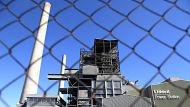The global economy has reached a turning point, the Reserve Bank says, on the same day as the OECD has lifted its forecast for global growth thanks to a co-ordinated economic recovery.
The interim report from the intergovernmental economic organisation re-affirms the central bank's view that the global economy is looking much better than a year ago, but the OECD has warned Australia an interest rate rise could trigger a sharp correction.
More BusinessDay Videos
RBA hopeful of economic pickup
RBA Governor Philip Lowe says high household debt and low wages growth continue to be problems for the economy, with household borrowing outstripping the growth in hourly earnings.
In a speech to the Australian Business Economists forum on Wednesday, the Reserve's assistant governor Luci Ellis said economic language had become a self-fulfilling prophecy for global growth.
"If you contrast the words most frequently used in the first chapter of the April 2016 IMF World Economic Outlook, with the same chapter in the issue from a year later, you can see how the tone has changed," she said.

"In the April 2016 edition, around 6 per cent of the key words coded as positive and 10 per cent as negative. A year later, more than 13 per cent of the words were considered positive, compared with about 5 per cent negative."
Over time, she said, this was more than just people feeling optimistic, as rising commodity prospects, financial market momentum, industrial production data and increased trade had driven global fortunes.
"Taking all that into consideration, there seems a reasonable prospect that, as long as nothing really bad happens, this global expansion could continue for a while," she said.
On Wednesday night, Dr Ellis' optimism was backed by the Organisation for Economic Co-operation and Development.

"Global GDP growth is projected to increase to around 3.5 per cent in 2017 and 3.7 per cent in 2018 from 3 per cent in 2016," the OECD found.
But it said strong medium-term growth was not yet secured.
"The recovery of business investment and trade remains weaker than needed to sustain healthy productivity growth," the global economic body said.
In Australia, it reiterated that an interest rate rise could trigger a housing market correction and put financial stability at risk, as the second of Australia's big banks tipped two rate rises in 2018.
On Wednesday, ANZ followed the National Australia Bank to book in a rate rise as early as May.
The OECD identified Australia along with Canada, Sweden and Britain as being particularly vulnerable to a rate rise as house prices are elevated relative to rents.
With Clancy Yeates
















68 comments
Comment are now closed